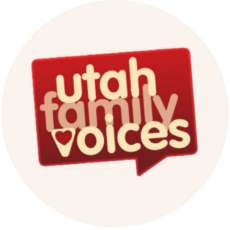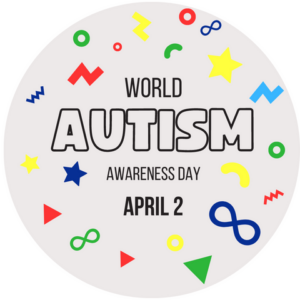
Autism Awareness Month
Autism Awareness Month is observed every April, and is an opportunity to raise awareness and promote understanding of Autism Spectrum Disorders (ASD).
Here are some things you should know about autism and the importance of Autism Awareness Month:
- What is Autism Spectrum Disorder? Autism Spectrum Disorder (ASD) is a neurodevelopmental disorder that affects communication, social interaction, and behavior. It is a spectrum disorder, which means that it affects individuals differently and to varying degrees. Visit the website Autism Across the Lifespan to get information about Autism at every stage of life.
- Prevalence: Autism Spectrum Disorder affects about 1 in 44 children in the United States, according to the Centers for Disease Control and Prevention (CDC). Use this CDC developmental checklist to help you know what to look for and what your child should be able to do at any given age.
- Early Intervention: Early diagnosis and intervention can make a significant difference in the lives of individuals with ASD. It is important to recognize the signs and symptoms of ASD and seek a diagnosis and appropriate support as early as possible. If you have concerns about your child’s development, speak to a trusted healthcare professional or contact the early intervention location near you to have your child evaluated and to find out if they are eligible for early intervention services.”
- Awareness and Acceptance: Autism Awareness Month is an opportunity to raise awareness of ASD and promote acceptance of individuals on the spectrum. It is important to recognize and celebrate the unique strengths and abilities of individuals with ASD.
- Support and Resources: Individuals with ASD and their families may benefit from a ran
 ge of support services and resources, including behavioral and educational therapies, assistive technology, and community support programs. To get in touch with organizations that provide support for families with children on the autism spectrum go to the Utah Parent Center resources page.
ge of support services and resources, including behavioral and educational therapies, assistive technology, and community support programs. To get in touch with organizations that provide support for families with children on the autism spectrum go to the Utah Parent Center resources page.- Connect with peer support! Engaging with parents who are going through, or have gone through, what you are experiencing can be helpful. The Family to Family Network (FtoFN) is a statewide parent support network run by volunteers. It is designed to educate, strengthen, and support families of persons with disabilities, especially those who are on the waiting list or are in services with the Division of Services for People with Disabilities (DSPD). The FtoFN is a project of the Utah Parent Center.
- Advocacy: Advocating for policies and programs that support individuals with ASD and their families can help improve their quality of life and increase understanding and acceptance in society. You can get involved through an autism advocacy group or organization in your community or online. These groups often provide opportunities for advocacy and can help you stay up-to-date on the latest policy and program developments. Sharing your personal story or the story of someone you know who is affected by ASD can help put a human face on the issue and make it more relatable to policymakers.
Our mission at the Utah Parent Center is to ensure all children and their parents have equitable access to support, services, and resources. If your child needs extra support in school or anywhere else, please know you can always contact us at 801-272-1051!
Services at the Utah Parent Center are always free and all of our consultants are parents of children with a disability or special health care needs. We are here for you!






